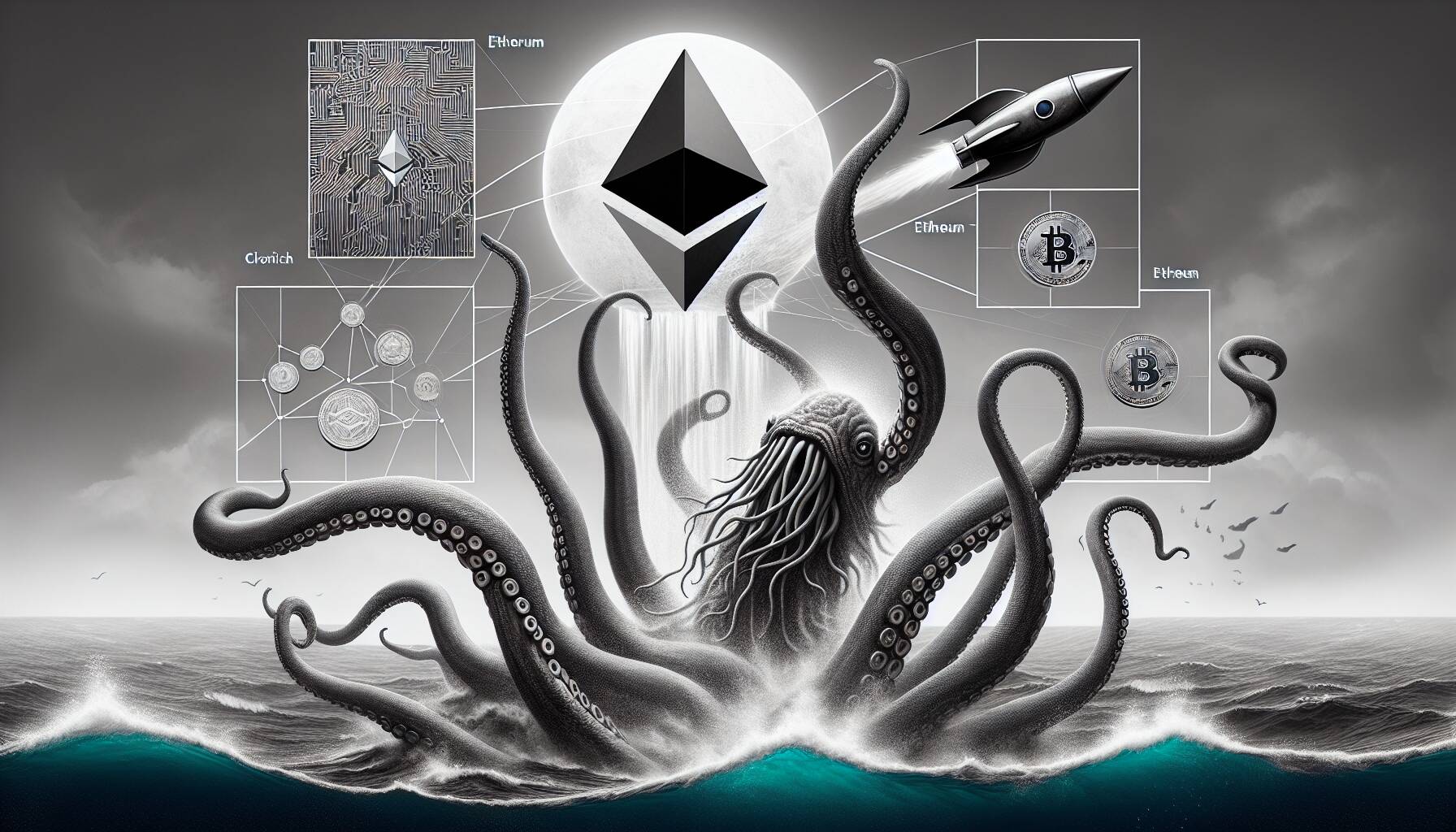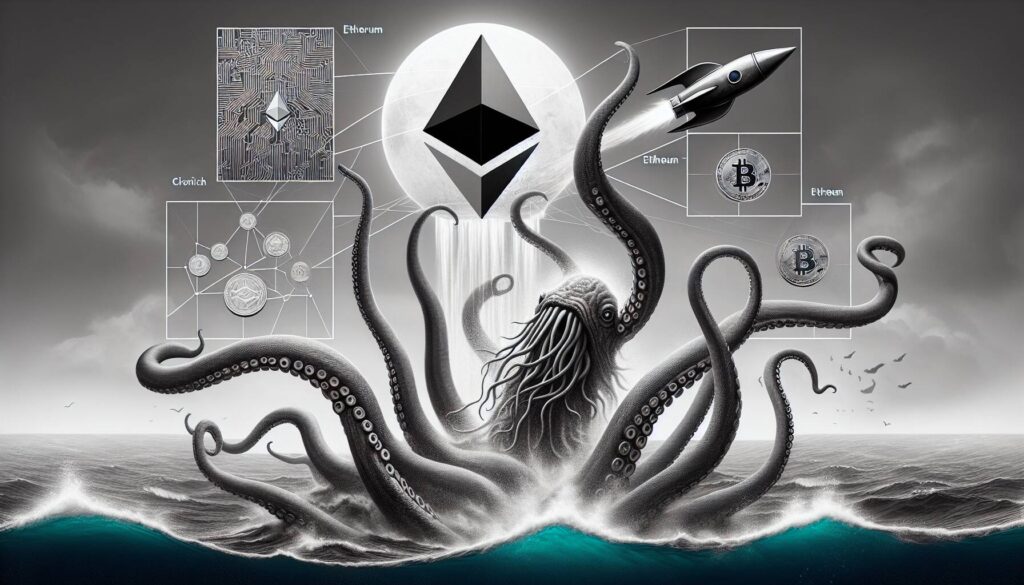In a significant development within the cryptocurrency ecosystem, crypto exchange Kraken and Swiss tokenization firm Backed have announced their partnership to launch xStocks on the Ethereum network. This suite of tokenized equities aims to seamlessly integrate traditional stock trading into the decentralized finance (DeFi) landscape. Eligible Kraken clients will have the opportunity to deposit and withdraw xStocks as ERC-20 tokens, which are fully collateralized on a 1:1 basis by actual equities, enhancing the accessibility of stocks within the burgeoning DeFi infrastructure.
The introduction of xStocks on Ethereum follows the successful rollouts on other blockchain platforms, including Solana, BNB Chain, and TRON, where xStocks have already facilitated a staggering $3.5 billion in trading volume since their debut. As the largest smart contract network, Ethereum provides a robust foundation for xStocks to reach a vast array of decentralized applications.
“Our multi-chain strategy is deliberate,” said Kraken co-CEO Arjun Sethi. “It ensures tokenized equities are accessible across ecosystems, portable between wallets and protocols, and composable within the applications users already trust. Ethereum is the next logical step.”
This latest initiative comes amid a growing trend to bring traditional financial instruments, such as equities, onto blockchain platforms, a process commonly referred to as the tokenization of real-world assets. Notably, other crypto exchanges, like Gemini and Robinhood, have also begun offering tokenized U.S. stocks for European users. Nonetheless, concerns regarding limited shareholder rights and the complexities of navigating fragmented regulations continue to linger over the tokenized equity market.

Tokenized Equities on Ethereum: Key Points
The introduction of xStocks by Kraken and Backed signifies a pivotal moment in the integration of traditional equities into the decentralized finance ecosystem.
- Launch of xStocks: A suite of tokenized equities on the Ethereum network.
- Direct Deposits and Withdrawals: Eligible Kraken clients can deposit and withdraw xStocks as ERC-20 tokens fully collateralized 1:1 by the underlying equities.
- Enhanced Accessibility: Investors can move tokenized stocks and ETFs between the exchange and self-custodial wallets, enabling access to Ethereum-based DeFi protocols.
- Previous Implementations: xStocks were previously launched on Solana, BNB Chain, and TRON, showing a multi-chain strategy for broader accessibility.
- Significant Trading Volume: The product has generated over $3.5 billion in combined trading volume since its launch.
- Ethereum’s Role: As the largest smart contract network, Ethereum provides xStocks with extensive reach and integration potential with thousands of decentralized applications.
- Tokenization Trend: Represents a growing momentum in bringing traditional financial instruments onto blockchain platforms, enhancing investor access and engagement.
- Concerns Raised: Issues such as limited shareholder rights and fragmented regulations surrounding tokenized equity offerings could impact investor confidence and regulatory compliance.
“Our multi-chain strategy ensures tokenized equities are accessible across ecosystems, portable between wallets and protocols.” – Arjun Sethi, Kraken co-CEO
Tokenized Equities: Kraken and Backed’s Strategic Move to Ethereum
The collaboration between Kraken and Backed to introduce xStocks on the Ethereum network marks a significant advancement in the tokenization of equities within the decentralized finance (DeFi) space. This initiative stands out in a competitive landscape where traditional financial assets are increasingly moving onto blockchain platforms. By allowing users to deposit and withdraw tokenized stocks as ERC-20 tokens directly on Ethereum, Kraken effectively enhances usability, paving the way for seamless integration with DeFi protocols.
Competitive Advantages: The integration on Ethereum, recognized as the foremost smart contract platform, enables xStocks to tap into an extensive ecosystem of decentralized applications. This expansive reach not only fosters greater liquidity but also attracts a variety of investors seeking innovative financial products. Additionally, the 1:1 collateralization with underlying equities assures users of the inherent value and stability of their investments, empowering them to use these tokenized equities within an established regulatory framework.
Disadvantages and Challenges: However, the challenges of tokenized equities remain significant. For instance, while Kraken seeks to democratize access to stocks, concerns regarding shareholder rights and a fragmented regulatory environment persist as potential roadblocks. These issues were echoed by competitors like Gemini and Robinhood, who have also ventured into the tokenized stock space but face scrutiny over similar concerns.
This development could benefit investors looking for more diversified and innovative ways to interact with equities, allowing those familiar with DeFi to leverage their assets across various protocols seamlessly. Conversely, traditional investors might find the integration daunting, as they navigate digital wallets and blockchain technologies that may be outside their comfort zone. For regulators, this rise of tokenized assets poses a challenge to establish comprehensive guidelines, potentially complicating compliance efforts.















